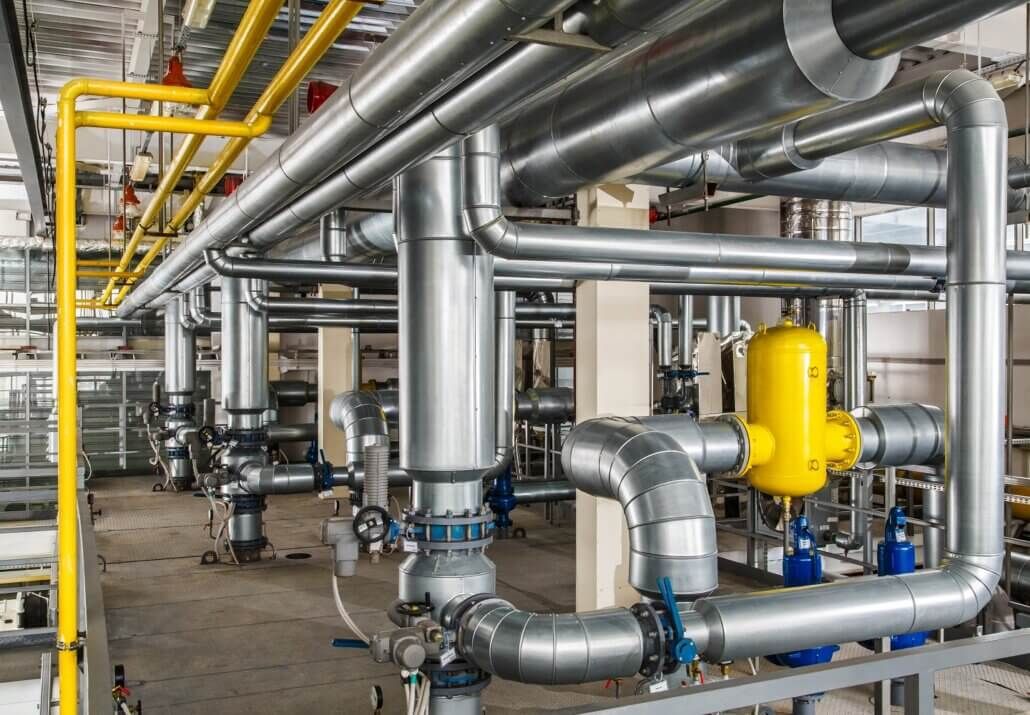Energy Savings in Water Treatment – Closed Systems
In a closed water treatment system, water is treated and recycled within the system, and there is no direct connection between the system and the external environment. This helps conserve water and minimize the risk of contamination.
In closed systems, chemicals need to be added to the water to prevent scaling, corrosion, and microbial growth.
Closed systems in water treatment, offer opportunities for energy savings through several methods which we will go into.

Implementing a water treatment program
Proper water treatment will help prevent scale buildup, corrosion, and microbiological growth, which can reduce the efficiency of heat transfer equipment, increase energy consumption, and lead to equipment failures.
By implementing an effective water treatment program, energy consumption can be reduced, and equipment lifespan can be extended, leading to significant energy savings over time.
Monitoring and optimizing operations
Regular monitoring and analysis of closed system operations can identify opportunities for energy savings, such as adjusting system controls, modifying equipment operating conditions, and identifying areas of water or energy waste.
Monitoring your closed system will also let you know of any issues within the system such as corrosion, corrosion in heating systems can lead to energy waste and inefficiency in several ways;
Corrosion can creates buildup on heat transfer surfaces, reducing the efficiency of heat transfer and requiring more energy to maintain the desired temperature. By reducing corrosion, heat transfer efficiency can be improved, reducing energy consumption and costs.
Reduced downtime: Corrosion can cause equipment failures and unplanned downtime, which can disrupt heating system operations and require additional energy to get the system back online. By reducing corrosion, equipment lifespan can be extended, reducing the frequency of maintenance and repair activities and reducing downtime.
Lowered water usage: Corrosion can create leaks and other damage that require additional water usage to maintain proper levels. This can lead to additional energy consumption in water treatment and transport. By reducing corrosion, water usage can be minimized, reducing energy consumption and costs.
We use the HASL corrosion monitor to help identify if there is any sign of corrosion in your system at an early stage.
Optimizing water usage
By optimizing water usage, for example, by reducing the amount of water discharged to the sewer, or by using recycled water, the amount of energy needed to treat and transport water can be reduced, leading to energy savings.
Using high-efficiency equipment
Upgrading to high-efficiency equipment, such as variable frequency drives (VFDs), can optimize pump and motor operations and reduce energy consumption.
To reduce corrosion and improve energy efficiency in heating systems, it is essential to implement a comprehensive corrosion prevention and control program. This may include water treatment, use of corrosion-resistant materials, regular maintenance and inspections, and monitoring of system operations to identify and address corrosion-related issues promptly. By implementing these measures, heating systems can operate more efficiently, reducing energy consumption and costs while improving reliability and safety.
Overall, closed water treatment systems can be an effective way to conserve water, reduce energy consumption, and minimize the environmental impact of water treatment processes.
Implementing these energy-saving strategies can help reduce energy consumption, minimize equipment downtime, and prolong equipment lifespan, resulting in cost savings and increased efficiency in water treatment from closed systems.
Contact us for more information on how to conserve energy via your closed systems.
